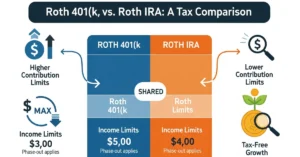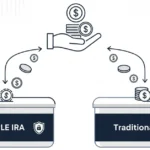No, you generally can’t directly ask an employee when they plan to retire. Doing so can be seen as age discrimination, which is illegal in many places. Instead of asking directly, employers should focus on creating a supportive environment, offering career development opportunities, and providing resources for all employees, regardless of age.
The Legal Landscape
The primary reason you can’t ask an employee about their retirement plans is age discrimination laws. In the United States, for example, the Age Discrimination in Employment Act (ADEA) protects employees aged 40 and older from discrimination based on their age. This law makes it illegal for employers to make hiring, firing, promotion, or other employment decisions based on an employee’s age.
Asking about retirement plans can be interpreted as an attempt to pressure an employee into retiring or to make a decision based on their anticipated retirement. This can open a company up to legal challenges and potential lawsuits. While it may seem like a simple, harmless question, the legal implications are significant and can lead to costly settlements and damage to a company’s reputation.
Why Employers Want to Know
It’s understandable why an employer might want to know an employee’s retirement plans. Business continuity is crucial, and having a plan for an employee’s eventual departure is a key part of effective management. Knowing a timeline allows companies to:
- Plan for succession: Identify and train a successor to ensure a smooth transition.
- Manage knowledge transfer: Capture and document the departing employee’s institutional knowledge.
- Budget and workforce planning: Accurately forecast future staffing needs and costs.
- Recruit and hire: Begin the process of finding a replacement well in advance.
These are legitimate business concerns, but the law prioritizes protecting employees from discrimination. The challenge for employers is to address these needs without crossing legal lines.
The Right Way to Approach the Topic
So, if you can’t ask directly, how can you gather the information you need? The answer lies in shifting the focus from the employee’s age and personal plans to their career goals and future contributions to the company. Instead of asking “When are you going to retire?”, consider these more appropriate and legally sound approaches:
- Open-Ended Career Conversations: During regular performance reviews or one-on-one meetings, discuss the employee’s long-term career aspirations. Ask questions like:
- “What do you envision for your next five years here?””What kind of projects are you excited about working on in the future?””How can we continue to support your professional growth?”
- Offer Retirement Planning Resources: Providing resources like financial planning workshops, seminars, or access to financial advisors can be a great way to subtly encourage employees to think about their future. This benefits all employees, not just older ones, and it positions the company as a supportive partner in their financial well-being. This creates a safe space for employees to approach HR or their manager if they have questions about their retirement benefits or are thinking about a timeline.
- Implement a Formal Succession Planning Program: A structured succession plan focuses on positions, not people. It involves identifying key roles within the organization and creating a talent pipeline to fill them. By regularly assessing the skills and capabilities of all employees, a company can be prepared for any departure, regardless of whether it’s due to retirement, a resignation, or another reason. This proactive approach removes the need to single out older employees for retirement discussions.
- Emphasize Knowledge Transfer: Make knowledge transfer a standard part of your company’s culture. Encourage all employees, regardless of age, to document their processes, mentor junior staff, and cross-train colleagues. This ensures that valuable institutional knowledge isn’t lost when any employee leaves, and it avoids the implication that a specific employee’s knowledge is being sought due to their age.
What if an Employee Volunteers Information?
An employee may spontaneously mention their retirement plans. This is a very different scenario from an employer initiating the conversation. If an employee says, “I’m thinking of retiring in the next year,” you can and should engage in a constructive dialogue.
Your response should be supportive and focused on logistics. You can ask:
- “Thank you for sharing that with me. What can we do to help make this a smooth transition for you?”
- “Would you like to discuss this with HR to understand your benefits and options?”
- “When you’re ready, we can start putting together a plan for knowledge transfer.”
This approach respects the employee’s decision while ensuring the company is prepared. It’s crucial to avoid any language that could be interpreted as pressuring them to commit to a date or implying that their decision is expected. The key is to be reactive and supportive, not proactive and inquisitive.
The Dangers of Ignoring the Issue
Ignoring the potential for an employee’s retirement isn’t a viable strategy. It can lead to a sudden and disruptive departure, leaving a company scrambling to fill a critical role and manage the loss of institutional knowledge.
The best strategy is to be proactive and strategic in a way that doesn’t violate the law or make employees feel discriminated against. By creating a culture of open communication, career development, and succession planning, a company can prepare for any employee’s departure without ever having to ask the legally risky question about retirement.
Conclusion: Building a Culture of Respect and Planning
The title question, “Can you ask an employee when they plan to retire?”, has a clear and firm answer: it’s best not to. The potential legal and ethical risks far outweigh any perceived benefit of a direct inquiry. Instead, the focus should be on building a company culture that values all employees and is prepared for any staffing changes. By implementing strategies like open career conversations, formal succession planning, and a strong emphasis on knowledge transfer, employers can gather the information they need to ensure business continuity while treating all employees with the respect and dignity they deserve. This not only protects the company from legal trouble but also fosters a positive and inclusive workplace where employees of all ages feel valued and secure.
FAQ
Is it legal to ask an employee about retirement plans?
In most countries, it’s risky to directly ask an employee when they plan to retire. In the U.S., the Age Discrimination in Employment Act (ADEA) prohibits making employment decisions based on age. Instead, ask neutral questions about future career goals.
How can an employer discuss retirement without breaking the law?
Employers can discuss succession planning and future goals without mentioning age or retirement directly. For example, “What are your goals for the next three to five years?” is a safe question.
Can asking about retirement be considered discrimination?
Yes. If it appears you’re pressuring someone to leave based on age, it could be considered age discrimination and lead to legal consequences.
Are employees required to tell their employer when they plan to retire?
No. Employees are not legally required to share their retirement timeline unless it is part of a contractual agreement or specific industry regulation.
Can an employer offer retirement planning resources?
Yes. Offering financial planning seminars, retirement workshops, or HR consultations for all employees is legal and often encouraged.
Is mandatory retirement legal?
In most countries, mandatory retirement is illegal except for specific professions (e.g., airline pilots, judges, certain safety-sensitive roles).














